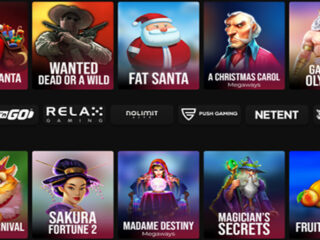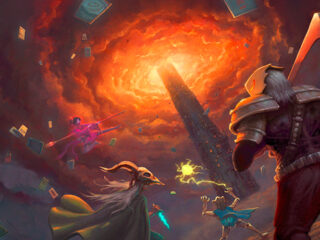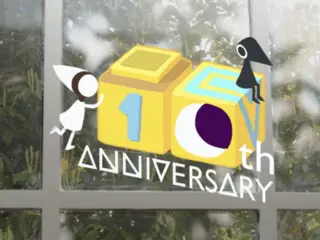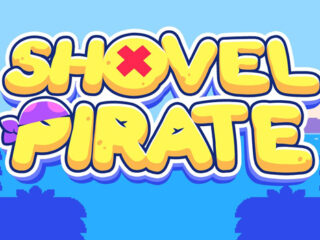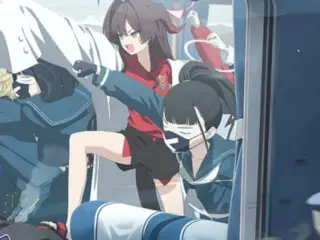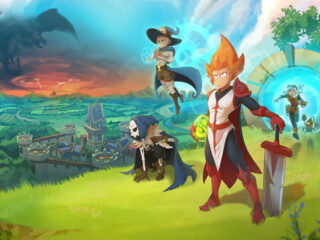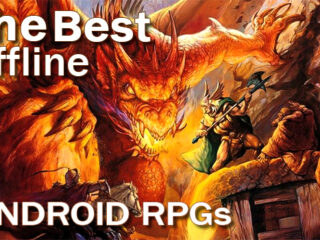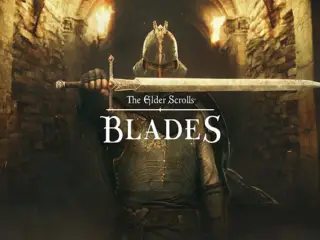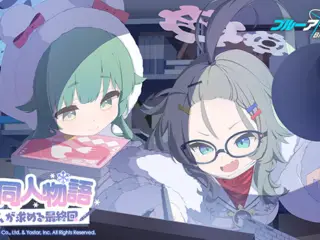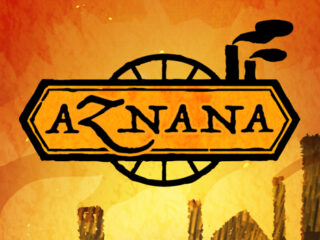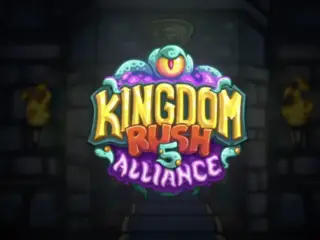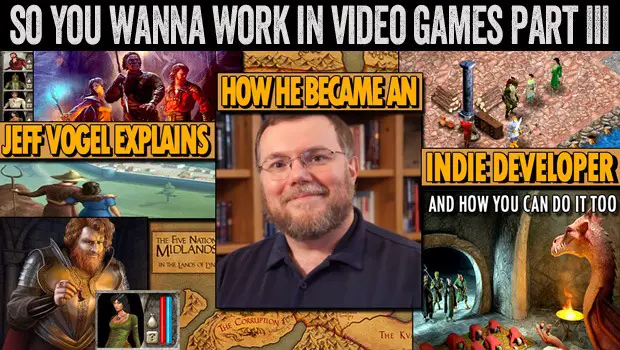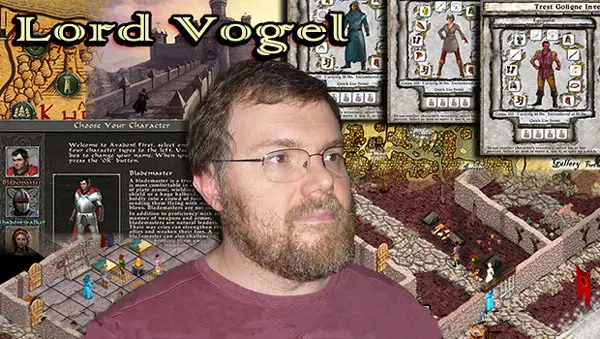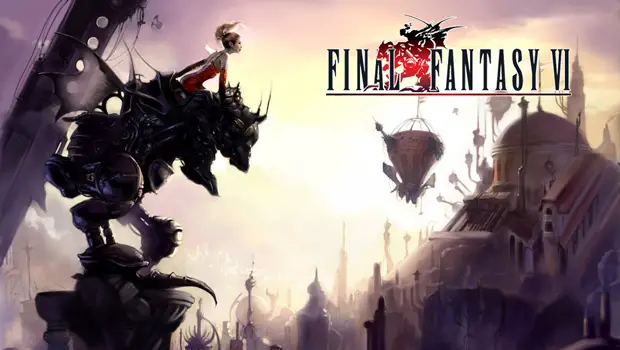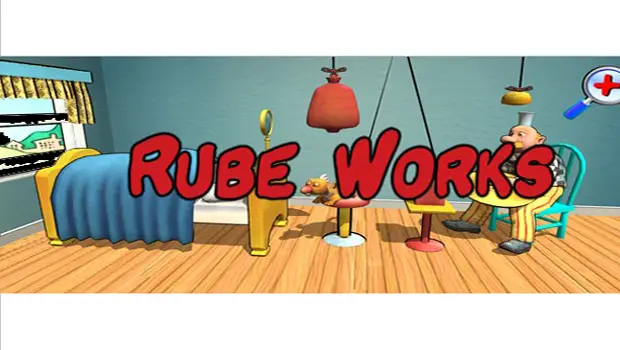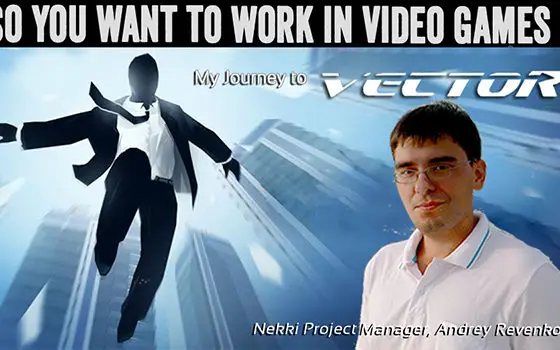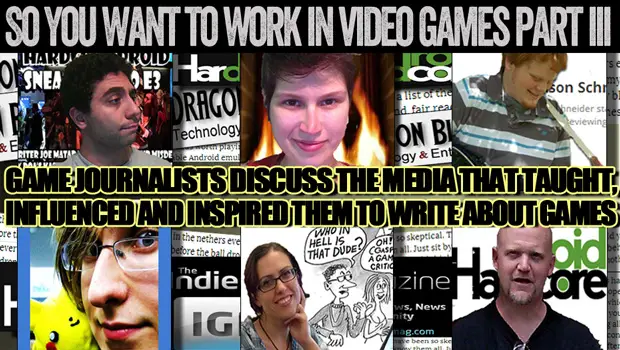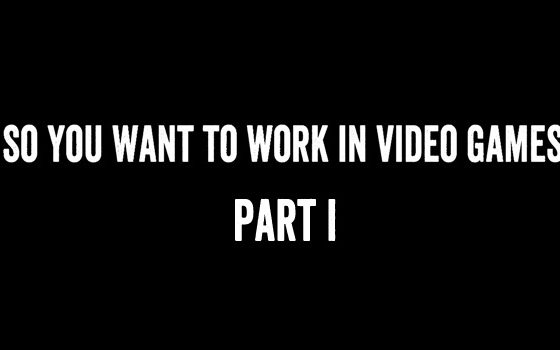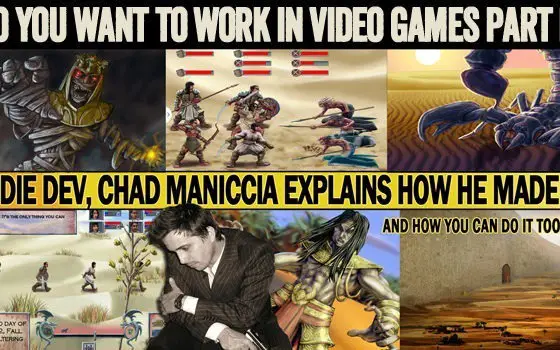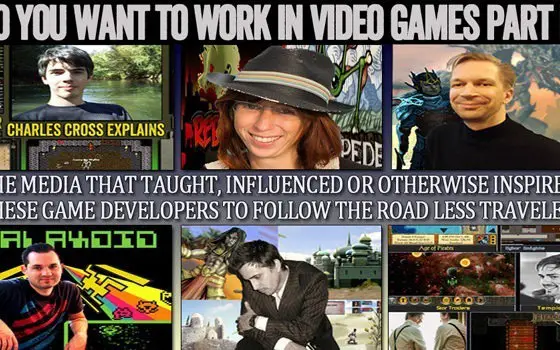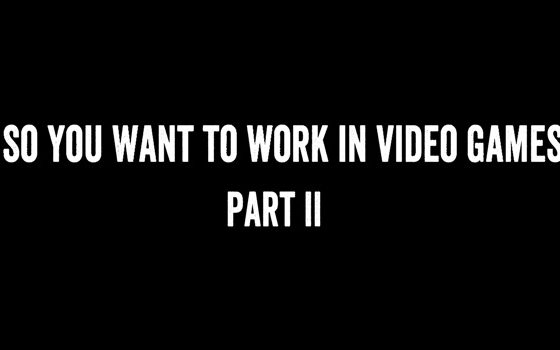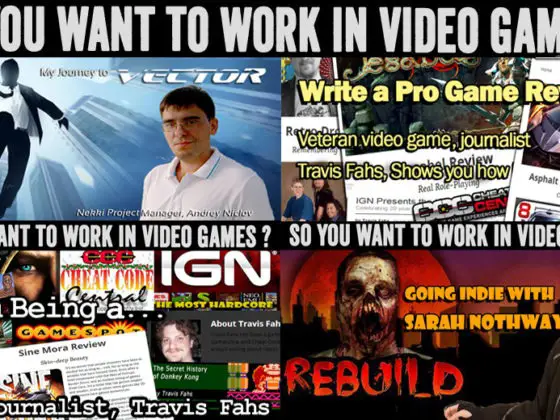Jeff Vogel’s work is remarkably influential. In an upcoming pair of articles in this series, journalists and game developers, respectively, discuss the media that taught, influenced or otherwise inspired them to work in video games. In one of the entries I penned for the journalist’s article, I wrote about how the RPG creation kit embedded in Jeff’s excellent RPG, Blades of Exile, prompted me to begin writing professionally.
The incident bears mentioning here because it is a strange quirk of fate that the same developer whose do-it-yourself software prompted me to begin writing seriously, has, years later, written a DIY article in my magazine; that is, the publication of the same writer whose career he helped start. Interestingly enough, when indie game developer, Sarah Northway (Incredipede, Rebuild,) read my piece on Jeff’s Blades of Exile, she wrote me saying she could have cited Blades for just about the same reason. So, aside from the fact that Mr. Vogel is a generous soul whose role-playing games are all rich, complex and immersive outings, it’s, again, fair to say that his good influence is surprisingly widespread.
~ed.
 Since Pong was invented in the 1970s (which was, according to Wikipedia, in the previous millennium), I have been obsessed with video games. Yes, I was a nerdy kid.
Since Pong was invented in the 1970s (which was, according to Wikipedia, in the previous millennium), I have been obsessed with video games. Yes, I was a nerdy kid.
I played them throughout my childhood. As soon as I learned to program in BASIC, I began to write games. Of course, in the beginning, they were terrible, but I was blessed with persistence. Perfecting any craft takes time. I wrote a game, threw it away, and wrote another. At the time, it was just a hobby. Making it a real career never occurred to me. I followed other paths.
In 1994, I was in graduate school studying applied mathematics. I was miserable, and I didn’t see any future for myself in that field. I decided to take a summer off to write a role-playing game and release it as what was then charmingly called “Shareware.” Eight months later, I released my first role-playing game: Exile: Escape from the Pit for the Macintosh. And, for reasons I still can’t quite fathom, people bought it!
Now you have to understand that 1994 was a different time. The Web was in its infancy. The big tool for selling games was AOL. Malls had shops that sold floppy disks with shareware demos. Sometimes, these shops were not too vigilant about explaining that the customers were paying 10 bucks each for the demos. The angry e-mails about this came to me, not them.
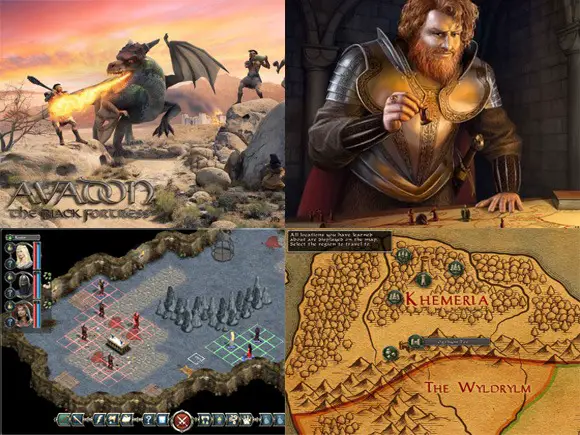
Thanks to word-of-mouth and great good fortune, I was able to quit grad school and begin making a humble living as a full-time shareware developer. I spent the following 20 years plugging away and writing a new game every year or two: indie, low-budget, hardcore fantasy RPGs for Windows and Mac (and, later, iPad, Linux, and Android). I was building an audience and scraping and begging for every press mention I could get. I ran lean and mean to survive through good times (The Dot.Com bubble and the more recent Indie bubble) and the bad times (Every other time).
We’re a mom and pop indie operation. At our peak, we had three full-time employees and the standard host of freelancers. From our damp basement in lovely Seattle, we made the sort of games I loved as a kid. We followed one of the truest paths to indie success: We found a neglected niche of games with a loyal fan base, and we served it. Nobody will mistake my games for big-budget AAA titles, but the handmade feel appeals to a lot of gamers.
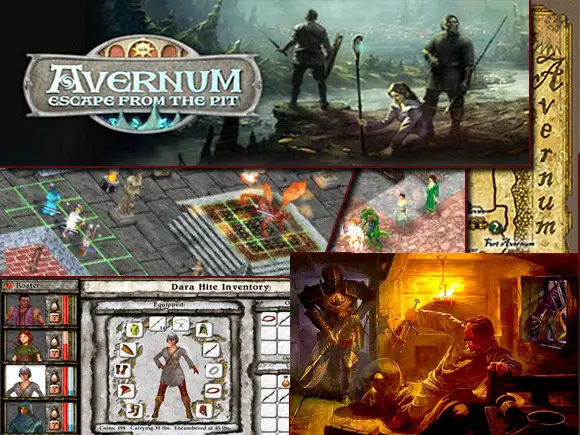
The business has changed incredibly since I started but the principles of working as an artist (and make no mistake: that is what game developers are) and running a small business are timeless. I certainly have some advice for young developers based on my experiences.
Video Games Are an Entertainment Industry
Let’s be clear: You aren’t writing banking software here. This is an entertainment industry. Trying to write games for a living is like trying to be an actor, a writer or a cinematographer. It’s a tough road. You have to work hard, make good connections, and, yes, sometimes get a bit lucky. The harder you work, the less luck you will need. But sometimes you still need to make the right connection at the right time to make it.
Ask yourself whether you could possibly live a happy life in a more stable, reliable job. If the answer is ‘yes,’ you should at least consider it.
Write a Game You Are Passionate About
Whatever you’re working on, it should be something you care about. I am passionate about video games, and role-playing games in particular. I love them, and I’m probably not good anymore for doing anything else but developing these games. I probably shouldn’t care so much about them but I do. So that’s what I write.
If the game you want to write doesn’t get you excited and you don’t have 50 things to excitedly babble about to anyone who asks, you need to rethink what you are doing.
Write for One Person
This is a bit of writing advice Kurt Vonnegut gave, and it’s perfect: “Write to please just one person.” Don’t let too many voices get into your head. Don’t aim for too many targets. Write a game that will be one person’s absolute perfect game.
Whenever I’m not sure what to do, I write a game based on what I would prefer if I were playing the game. Do you agree with that approach? Maybe not. But I’m not you and I can’t read your mind. I can only truly understand myself. My tastes are the one compass I can always read and so far they have never led me astray.
Figure Out What Works for Your Business
Remember that it’s your business so you should do what you need to do to survive.
I am a freak in the software industry because I write low-budget games. I mercilessly reuse art from game to game. If a wolf icon looks nice, I figure it’ll still look nice in the next game.
I rewrite my games every 10 years to spruce them up and put in better interfaces and graphics. But I maintain that if an idea was good in 1994, it still will be good in 2014. I won’t let any game I believe in die.
I don’t like to travel or meet lots of strangers, so I do all of my marketing by e-mail. It’s made my business grow slower but it’s what works for me.
Ignore the Forums
Don’t take advice from anyone. Choose the voices you trust carefully. You should be very careful how many voices you let into your head. Find a small group of friends, coworkers, or testers you trust to give you feedback and listen to them!
Don’t rely on forums. For any difficult decision, you will find 500 people who argue passionately on one side and another 500 people who argue passionately for the other side. It will drive you mad.
Be Nice
One of the best weapons you have as a small developer is having a personal relationship with your customers. Be friendly. Answer their e-mails. Try to get them to like you. Your goal is to build a core group of loyal customers who will carry you through good times and bad.
Charge the Price You Need To Survive
Never, ever let anyone pressure you into charging too low a price. For most of my career, I charged $25 for games and I was writing niche, low-volume products! I came up with that price because that was the amount I needed to stay in business. Right now, with sales and bundles, Indies routinely give their products away for pennies. If you can be assured of that sort of value, go ahead and charge a low price. But if you can’t, you absolutely have to charge a price that will keep you in business. The more niche your product is, the more you need to charge.
Get a Chair With Good Back Support
Seriously. Your back is important! Similarly, don’t buy the bad and possibly false statements from developers who brag about how much sleep they miss. You need sleep to live! And you need to eat healthy food. Get enough rest. Take breaks. Take care of yourself! You’re trying to make a living as a game developer … You have enough problems without getting sick and pasty. Your body is the best tool you have! Make sure you look after it.
Writing games is a great way to make a living if you can manage it. Your work will, at its best, make people happy, and that is awesome! Just take it seriously and believe in yourself! Good luck!
******************
*If you are an indie developer or games journalist interested in reading all of the articles from Part One and Part Two of our So You Want to Work in Video Games Series as well as all of the upcoming articles in the series, plus exclusive interviews, reviews, our app and digital magazine, you should subscribe to Hardcore Droid.
Send an email to aljackson[AT]hardcoredroid[DOT]com, type “work in games” in the subject heading and I will send you a discount coupon worth 20% off our already rather inexpensive yearly subscription fee.
Check out a sample of our digital magazine here >>>
Check out the exclusive Magazine section of our site here >>>
